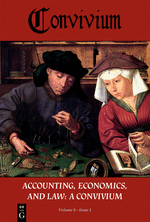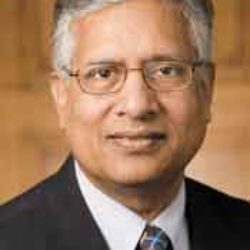P: Accounting, Economics, and Law
This network focuses on the intersection of accounting, economics and law. Institutional design, rules and social norms are critical to the working of organizations in economy and society. Financial, economic, social, and legal processes and languages play an influential and largely neglected role in this working, and raise broad societal and global concerns. They lie at the heart of control, governance and regulation. The network will explore their influence in the context of social, cultural, and political economy and history. It will foster disciplinary cross-fertilization, novel investigations and institutional analyses of their role in the dynamic relationship between individuals, organizations and institutions. Among others, issues of control, valuation, finance (and financialisation), accountability, responsibility, governance, and regulation will be central to the concerns and development of the network. Methodological tolerance and pluralism are also essential to the overarching purpose of enhancing our understanding of the phenomena of interest.
This network relates to the journal CONVIVIUM (Accounting, Economics and Law: A Convivium).

* * *
The following interview with Network P organizers Reuven Avi-Yonah, Yuri Biondi, and Shyam Sunder was conducted in 2017 by Emma Greeson, a PhD candidate in Sociology at UC San Diego.
When was your Network founded?
We founded the Network with the SASE annual meeting in Budapest, in 2005, through a mini-conference devoted to accounting, economics, and law.
Were you among the founders? Briefly, what was the genesis of the Network?
The Network was founded by its current conveners: Reuven Avi-Yonah, Yuri Biondi and Shyam Sunder. In 2005, we were discussing about topics of control, governance, and regulation. We identified a need to better understand legal, economic, and financial aspects that are central to these matters. We were convinced that received disciplinary approaches tend to not address them comprehensively. Therefore, we decided to invite scholars and experts in these fields to join us, to foster a dialogue and generate trans-disciplinary understanding and knowledge.
What academic disciplines are most represented in your Network?
Our research Network aims to synthesize and cross-fertilize disciplinary approaches to better understand our phenomena of interest. Accountants, economists, and lawyers have been attending our Network, along with sociologists, political scientists, and other social scientists. Occasionally, scholars from institutions and regulatory bodies contribute to our discussions.
How has the focus of the Network changed over time?
While the main focus is sufficiently broad to remain stable, every year we seek and organize panels and Network conferences (series of panels) on matters of new interest within our broad framework.
What are some of the most important issues or themes that have guided your Network in recent years? What do you think will be central in the next few years?
Since 2005, for instance, we have devoted special attention not only to critical social events such as the international accounting convergence and the aftermath of the North Atlantic Financial Crisis of 2007-2008, but also to fundamental topics such as the evolution of regulation, and the emergence of shareholder value and primacy in corporate governance and social responsibility. Our ambition is to constantly discover interesting and emerging issues to be investigated. We shall keep paying attention to accounting and control, auditing, corporate governance and social responsibility, financial and prudential regulation. But money, credit and banking, central banking, prudential regulation, sustainability, and tax avoidance are also important emergent issues.
What do you get from SASE and this Network in particular that you do not get at other conferences that you attend?
SASE has been an open and collaborative environment to the development of our intellectual venture. It has trusted us on the scientific work while assuring the organizational and reputational resources that have been required to establish, maintain, and develop it through time.
Is there anything about this Network and its dynamics, frameworks, orientations, or central issues that make it different from other Networks?
Our focus on accounting is certainly distinctive, but also the ambition to address socio-economic instruments not only to understand and situate them in their organizational and institutional contexts, but also to analyze, assess, and possibly improve on their socio-economic performances.
What would you want people to know about your Network?
The main message is that we are open to discuss and welcome scholars willing to engage challenging topics and an open dialogue across methods, disciplines and national traditions.
What is your most recent book?
Our research Network relates to our journal ‘Accounting, Economics and Law: A Convivium’, active since 2011. This is certainly our main outlet for publishing ideas and analyses that have been discussed at our SASE events. Feel free to have a look at it here.
Anything else you’d like to add?
We wish to thank Martha Zuber for her kind, open and effective support all along our research Network work. In the future, we would be honored to be more involved in SASE‘s core activities, including by contributing to the plenary sessions and strategic planning. Last but not least, perhaps the link to the 2017 call for papers in our journal, here.


